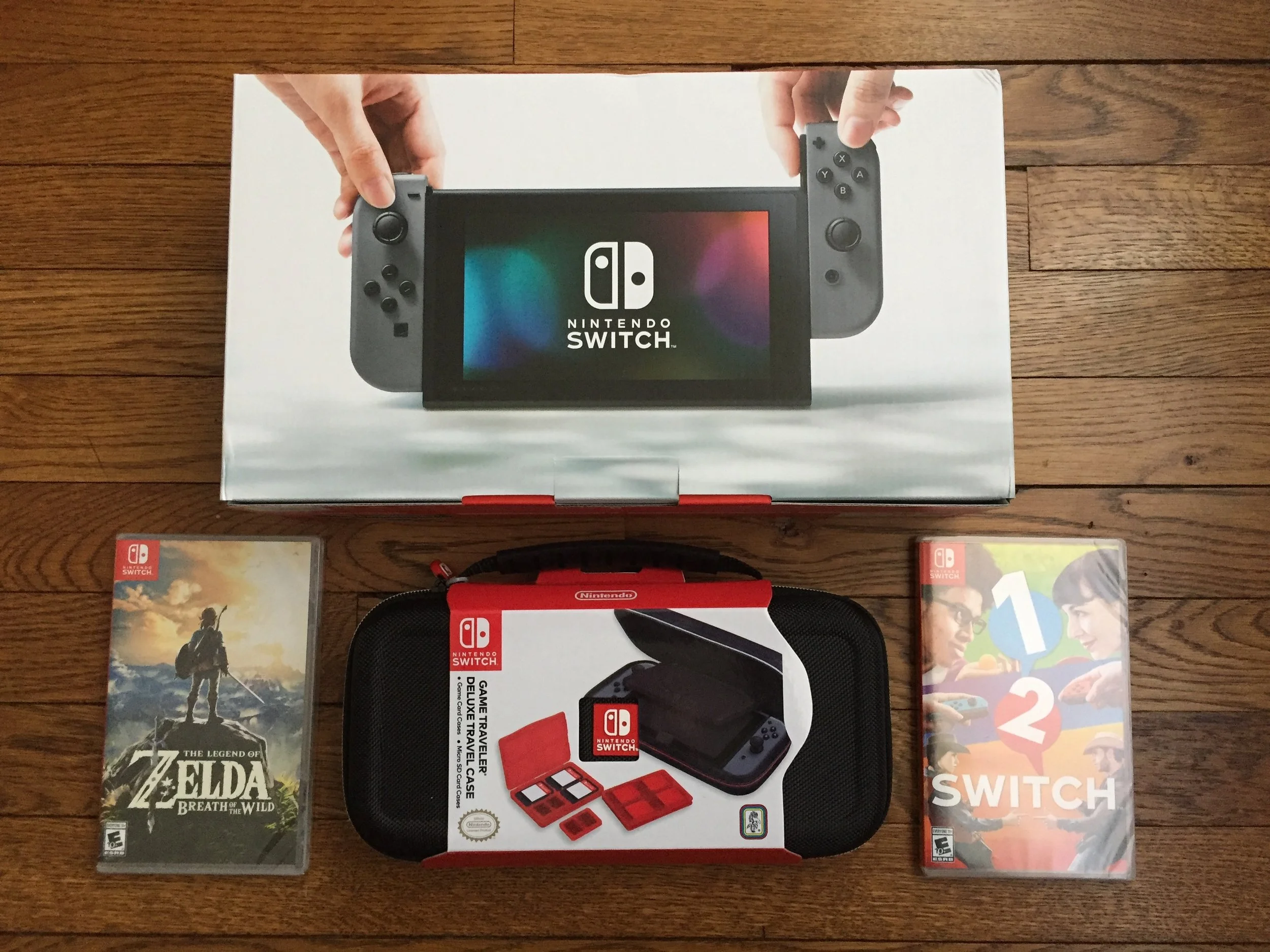Special edition consoles and handhelds. Limited run games. Pre-order bonus figurines. Rare amiibo figures. The list of Nintendo offerings that are supply-constrained (usually artificially) could go on and on, ironically.
In the post-eBay world of online shopping, trying to purchase limited edition goods is increasingly a major drag, especially among the already tech-savvy video game crowd. Re-sellers flock like bloodhounds to any "limited" or "special" edition product to snatch up early pre-orders only to flip them on eBay or Amazon at wildly inflated prices. Few companies manage to attract as many of these internet bottom-feeders as Nintendo, and it's about time they put a stop to it to protect their actual fans.
Today's release of the New Nintendo 3DS XL, which included a Majora's Mask special edition console, is just the latest Nintendo offering to remind fans of this evergreen problem. Retailing for $199.99, the console features a gold finish with some of the game's spooky artwork on the outer shell.
It wasn't the greatest deal in the world, admittedly: it didn't include a copy of the game and it had no special functionality from a regular New 3DS XL. However, the price was the same as a regular model, and (at least to me) it just. looks. amazing.
And, apparently, it wasn't just me who thought this was worth getting. Read this article over on Kotaku that documented the system's availability, lack thereof, and rescinded order fiascos. It has been continually updated for basically a full month with all the ups and downs of this system's stock problems.
A full month. Hello?! There's clearly a problem here.
I was one of the many who secured a Best Buy order only to have it canceled later via email due to stock shortages. Shortages of a system that had not yet been released! I can understand that a month away from release is too late for additional systems to be produced, packaged and shipped by the original release date, but Nintendo, seeing the news spring up around this could have said, "Hang on, retailers. Let us know how many pre-orders you have, and we'll produce a second run to make sure our fans have a great experience."
That, of course, didn't happen. Instead, you can go on eBay and pay upward of $400 for, essentially, a paint job.
This is hardly the first time Nintendo has created products that its fans are so wildly passionate about that it simply can't meet the demand (remember the first two years of the Wii's life?). In fact, this just happened (and, really, is still happening) with its "unexpectedly" popular line of NFC-enabled figurines. When these launched alongside Super Smash Bros. for Wii U last fall, they were an instant hit, selling out quickly and repeatedly.
Sure, you can buy Mario, Luigi, Yoshi, Peach, Bowser, etc., pretty easily. But these characters have, in fairness, had years' worth of various third-party, licensed toy options for collectors. You know which characters didn't have many/any figurines before amiibo? Wii Fit Trainer, Villager, Captain Falco, any of the Fire Emblem people, Toon Link, Little Mac, and more. Nearly all of these more unusual (and often more interesting) characters are increasingly hard to find or selling for major mark-ups.
Great selection, huh?
While it is great to see that Nintendo is reissuing the Marth amiibo, notoriously one of the hardest to find for many weeks, that is easily the exception for Nintendo. Even so, there are still plenty of amiibo on the grey market for insane prices. At the time of this writing, I see Pit for $85.99, Fox McCloud for $60.00, Villager for $49.95, and King DeDeDe for $39.99, just to name a few.
These are plastic toys that haven't even been released half a year. There is no reason for shortages so early in the lifecycle of these products other than Nintendo apparently enjoying watching their fans scramble and overpay while re-sellers hold these figures, consoles and other paraphernalia ransom behind huge pay walls.
I can only hope Nintendo is learning from some of these mistakes. This is not the way to treat a rabid, loyal fan base. We're talking about a company here that could be making a profit on these items that people cannot buy. Is the publicity they gain from fans agonizing over their inability to secure these items really worth the frustration and lost revenue of simply not producing more stock?
For whatever reason, Mr. Iwata & company simply seem to turn a blind eye to the most basic rules of economics.













